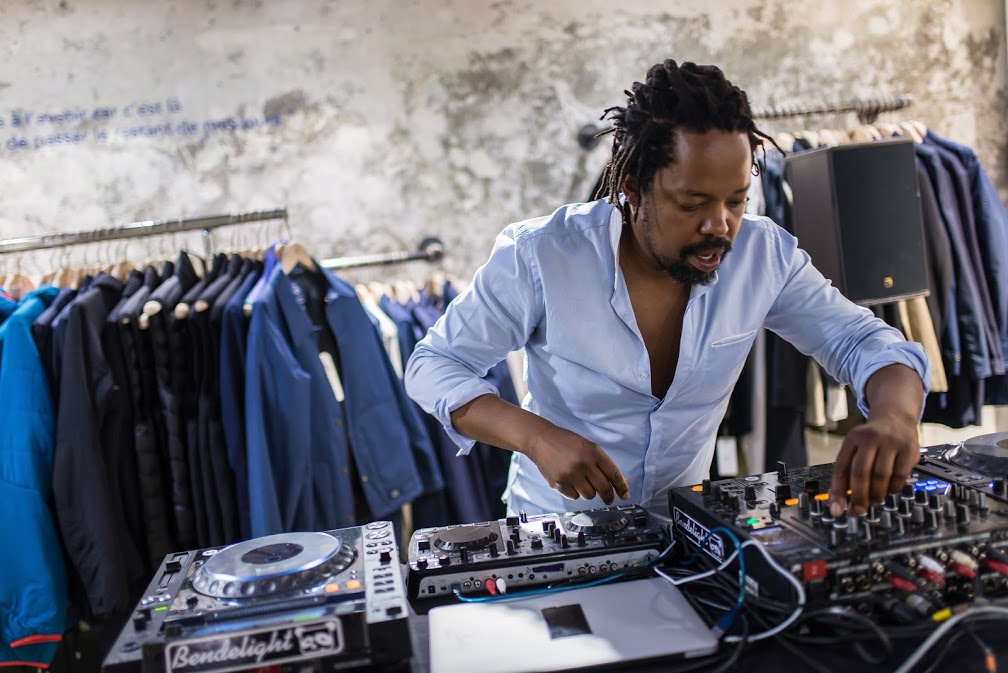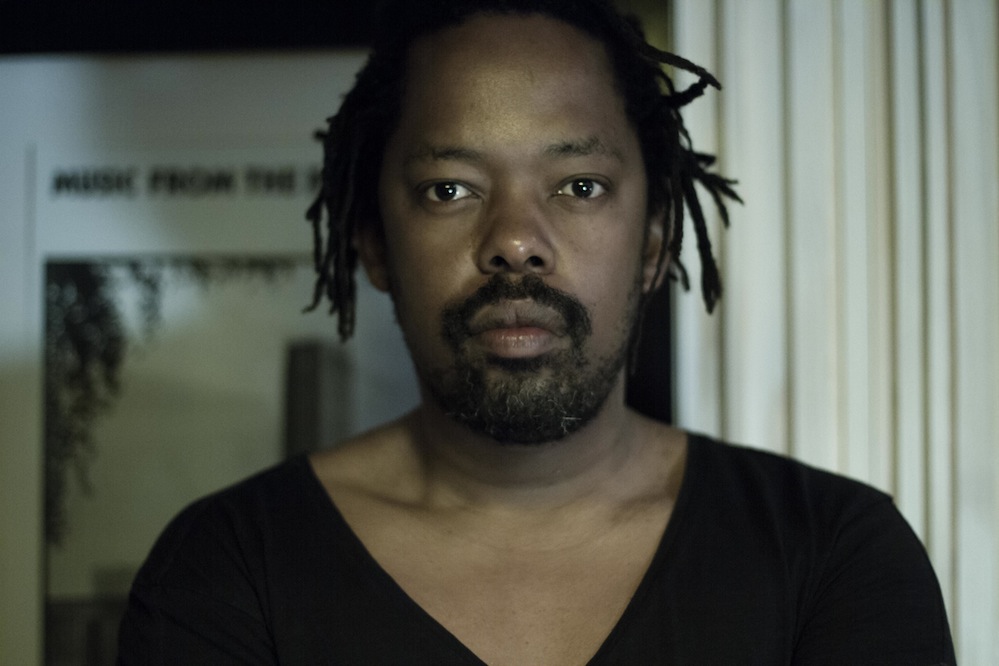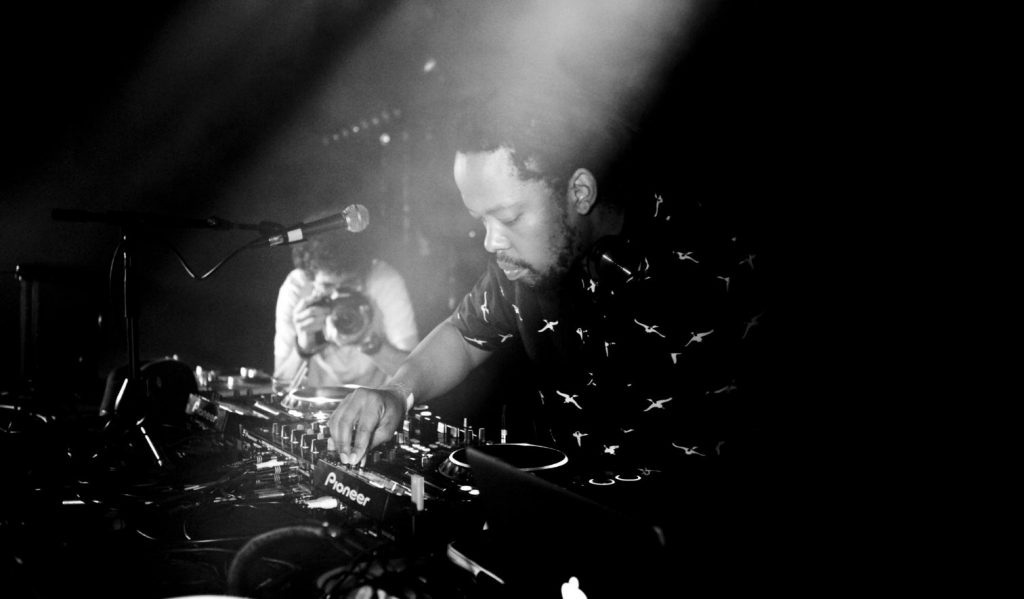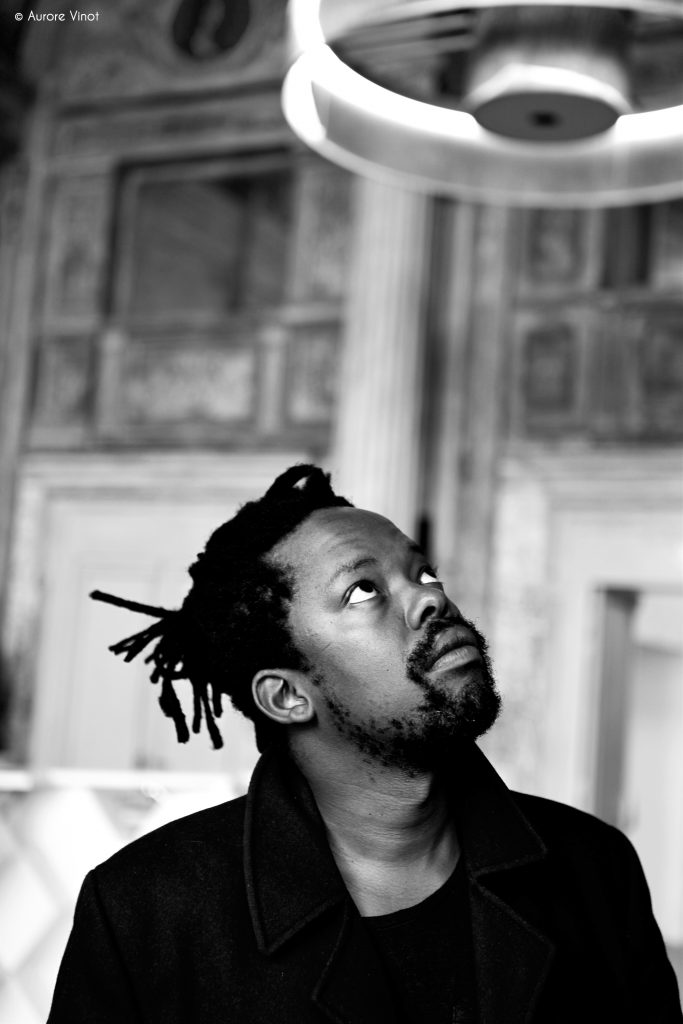
Today PAM meets Mo Laudi : Artist / Producer / Party planner and boss of Globalisto records. The South-African based in Paris, is everywhere and has just released a new EP with Gazelle and DJ Invizable.
He talks about this collab, his record label, Afro-House Music in South Africa and gives us good places for Afro-Clubbing in Paris !
Can you tell us more about the launch of your label “Globalisto”? What is your artistic guidelines ?
Globalisto started first as a Club night, it was through my background as a DJ and the love of dancing that I used to create parties in Polokwane, South Africa. After I moved to Johannesburg then London, still continuing DJing and promoting parties. In London, I realised people did not know much about the electronic South African scene, this was around 2000.
I started my party in London, called it the Joburg Project. It was the only weekly residency in the UK where you could hear SA House, Kwaito, Afro House and Deep house. People came from all around the UK just to party. There were some tracks we were playing that started to spread for example, I played “Township Funk” 2 years before Warp records picked it up and released it. When “Township Funk” came out on Warp it was a big hit, it influenced a lot of UK Funky producers. When I moved to Paris, I realised there was the same gap with no scene where you can hear Afro House, Kwaito music. I heard about DJoon, but it was more Deep House, Disco, Soulful and it was a bit difficult to get booking there.
So I started to do my own Globalisto parties at Nouveau Casino, Alimentation Generale, Le Comptoir General and created a festival at Gaite Lyrique, that was the turning point. After bringing many artists to Europe, I realise they are not known to a larger audience here, and their music is not heard on radio, they have no network… That’s one of the many things what Globalisto is about : to build these bridges, to show a different side of African music.
The focus has always been simple : music with a groove, this turns to a little syncopated rhythm, sometimes the mood is dark, sometimes it’s light. Its mainly Afro-Electronic inspired but its does not totally always have to be, we are looking for everything from everywhere, so long as its cool and fresh expressing something original.
Also, there are a lot of labels doing Afro-Electronic music, but I don’t know many that are African owned and black owned and I believe that’s important that Black people we empower ourselves in this day age where many people are still oppressed.

Can you talk about your collaboration with Gazelle and DJ Invizable ? How did you met them ?
I met Gazelle and DJ Invizable, first digitally on myspace, physically for the first time was when they did their show at the Social Club, that time it was the hippest place to be in Paris, I had played a few times with Radioclit, once with Major Lazer and also for Brodinski residency. I knew the boss of Social club Manu, and he was very nice, so it kind of felt like home away from home. I was so excited that they played there and they were from my country. I had been following them a lot on Myspace and different blogs. I liked their whole outlook and approach.
Two white guys doing Afrikaans Nu disco, Limpopo, one guy dressed as Maputo Seseko, the other wearing a hat from Lesoto with a helmet, their whole project was interesting, we spoke about a collaboration, and how to pimp on low budget and a new friendship was formed. It was quite fun the way they navigate the issues of race. Now, Gazelle is based in New York and DJ Invizable is in Cape Town, so we communicate mainly via internet.
We recorded the song in Paris, and the video was shot in South Africa. I shot my part in Paris but it was hard for Chris Saunders, the director to fit my part in which is a shame but the video is great as it. It has one consistent impromptu idea, the guys singing in the streets of the Township and Pantsula dancers flexing their moves.

The track “Speak Up” is dedicated to the youth of Africa, to encourage people to feel concerned and say something. Is it important for you to be an activist artist and what are the issues you are involved into ?
I don’t know if I can say I’m an activist. If I am, I’m a natural activist that I do not even consider myself as an activist. There are people that fight better than me. I believe the more we know about issues the more we will care about them and it becomes normal. Everyone should be an activist. The name Globalisto came to me as a way to express an ideology which that capital Globalism is finished, as we know it, it hurts, Global finito! What you do on one side of the world affects the other. You can not colonize people and expect them not colonize you back. There is no culture that is superior, we learn from everything and everywhere. I believe in freedom of movement with no borders not just because you have a lot of money that you can be welcomed everywhere. I will respect laws, carry my passport do my visas, I’m no Mos Def. The name Globalisto is a protest to say we are all connected. You can’t steal oil, bomb people, and expect nothing to happen. Everything has a cause and an effect. I believe in building bridges, understanding other cultures, sharing my culture and have fun doing it.
‘Speak Up’ is about that : not being afraid to stand up for what you believe, to express yourself as you wish, and to grow beyond our borders, thats when we flourish, speak the language you want, love who you want, don’t live in a box. The Pedi language in which I rap in the song. It used to be looked down upon by some people from big cities, seen as uncool, so I feel by using it, I allow kids from hood to be empowered and take pride in who they are. Also people from wherever they are not to be shy about their language. We are programmed to think other languages are better just because that language is most spoken, but when we look at history, you find its because the original speakers of the language killed the most people and that’s why that language has more power today. I’m a peace loving guy, I believe in sharing good vibes but I like uncover uncomfortable truth as I believe when we address these issues it allows us to move forward.
You do organize “Secousse” parties at Le Comptoir Général. Do you think Paris is a good place for African music clubbing compared to London where you have lived ? What are the good places/events you recommend ?
I did co-organise some Secousse parties at the beginning, but not anymore. It was never really an entity that I owned, it was more Etienne Tron’s baby. He is an interesting chap, he was the one that introduced MIA to Diplo. I met him on Myspace, I wanted him to do a remix for me, but he never did. He already had the Secousse party going with the other Radioclit member Johan. He invited me over to Notting Hill Arts Club, where they held the party once a month. I rocked the mic and they were quite surprised how good I was, then it started to be a regular thing with them, even started to work on another project they had which was called The Very Best.
I moved to Paris, and then, a year later Etienne moved to Paris. We did some parties at Divan Du Monde, then he told me was working with Aurel in opening a new space : it was going to be called Comptoir General. At the beginning, it was quite, they asked me to help out and did some flyers, there was no sound. I had used to tell Etienne it would be a great with music, many moons passed and a Sound System was installed. We did a lot of parties and the vibe was amazing, but a limiter had to be installed because the neighbours complained and the police came a few times.
I still enjoy playing there now and again, the people are great, but with the limiter, the vibe is not the same. It cuts now and again when the crowd start to enjoy themselves, everybody sings and shout, then it cuts. When I play there, I would prefer during the week, when there is not so many people.
Although Paris a bit more in to food than music, London has more clubs and music. But Paris is a great place for African clubbing music now, everything is changing so fast. Years ago, I would have said no, even though it is the birth place of Coupe-Decale, then it went to Africa then It came back. It really depends how brave you are and what you are looking for, and what you consider African Music.
Now, you have Drake produced by South African producers. This music is now Pop and its everywhere, Azonto, Afrobeats… Hip hop DJ are playing this, And you have the whole Afro-House and Afro-Deep, a lot of Techno, DJ are playing loads of stuff from South Africa.
As much as Paris is open there is a little racism in Paris, its hush hush! its what people associate with the music, there is also a lack of culture in diverse music this is because societies do not mix very much in certain areas. Certain people like to stick only to what they know, some people party only in the West or East, and when they get there, they speak only with their friends, people like to keep to themselves.
One place I was looking for a venue to do my party the owner asked me, “is the audience going to be mixed?” he saw that I was shocked and perplexed and he said it’s not me but the neighbourhood, sometimes, they get scared when they see too many black people. I guess, if a lot white people made the effort to go to the Coupe-Decale parties in the suburbs, we could see new genres of music being born in Paris, as in London. And I’m not talking Afro-Trap, I’ve been doing that since 2000. There is a problem of space in Paris, but there is a big room for improvement that what’s nice about it.
I would recommend in Paris :
- The Tropical Discotheque parties with Emile Omar. There is always a good vibe with traditional vintage sounds from a nice sound system and a lot of ass shaking, he knows how to choose his locations and has a good following now.
- the Ancestral Party with Boddhi Satva at DJoon. I like his vibe, his personality you can feel that the music is spiritual to him. I’m the same but he reflects it really well and the vibe is always incredible there. I love House dancers, people who are just there to dance like crazy, the music in super organic.
- Mawimbi parties : Alex from the crew used to telling me they are starting a collective and asking me advice on the name what I thought. Later they came up with Mawimbi, I thought it was great, I played at their first party at Chez Moune and I booked them to play one of their first big gig at Gaite Lyrique. It was dope! The music is always cool House with touch a Africanism.
- 97% Africa with Yannick. But he has somehow slowed down now, I guess he is looking for a perfect venue.
- Sofrito parties but that is also once in a while.
- The club called Alize. I go there now and again, the music always distorts and the tracks change very quickly. It’s very West African and there is table service. Its great after 2am.

How do you explain Electronic/House Music is so famous in South Africa with new bands such as Batuk ? Who are the artists you recommend to follow ?
 Deep House music in South Africa is Pop music, its everywhere, its the soundtrack of the township, you can’t escape it, if you don’t like it you have a friend who loves it. Some people even say the true home of House music is South Africa. Its really connected to the roots of tradition worship music.
Deep House music in South Africa is Pop music, its everywhere, its the soundtrack of the township, you can’t escape it, if you don’t like it you have a friend who loves it. Some people even say the true home of House music is South Africa. Its really connected to the roots of tradition worship music.
The music has always been strong in South Africa, most people are very proud of their roots so they mix that with their influences. It’s interesting to see the rise of interest from outside the country, I guess the world is always looking for something new.
You have a bunch of South African DJs that have crossed over like Black Coffee, Black Motion, Culoe de Song this is African music, Afro house, SA House. Even Techno places are starting to program this because I think Techno, as is it is, is changing, everyone is opened to influences and this the new sound.
There is Floyd Lavine a Cape Townian producer based in Berlin, Lusiman, a great Gqom producer from Durban, he is Highly recommended, Limpopo sunsets a new group from Limpopo…
Batuk are good friends, we been speaking for years about making tracks together, I love their new project.
Have you ever played in South Africa and other countries in Africa ? Where would you love to play ?
As we speak, I’m in Ghana for the first time and I feel very blessed to be discovering the scene. Although it’s the very first time, my Ghanaian collection even impressed the locals. I started to play music in South Africa, doing pool parties when ever my parents where out of town. I’ve done a few clubs, I was infamously known as Capone.
There is nothing like playing to a South African crowd, the level of music appreciation is insane.
I have performed in 15 African countries, and 20 outside the continent… Everywhere is different. I have never met anyone that knows all of Africa deeply, there no one that can say they know Africa more like I can’t say I know Africa more than anyone. All that I know is that i know nothing, I’m hungry, I’m a student of culture.
I would love to Play in Nigeria. I’ve heard its crazy there, it’s oil money on steroids. I wonder how they will appreciate Afro-House, they are so into Bling bling it’s bonkers !
To finish, what is your favourite Classic Album of African Music ?
I stopped listening to albums a long time, I blame that on DJing. I always pick the hottest track on the album. I love Oscar Sulley & the Uhuru Dance band’s track Bukom Mashie. I can play that again and again over the years. It’s very Upbeat and Jazzy at the same time, great drum, amazing groove. I would love to remix it one day.
Follow Mo Laudi :



